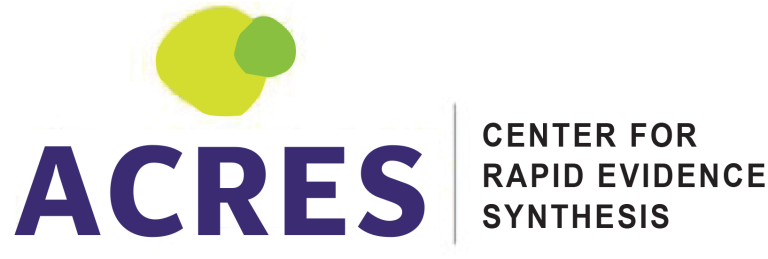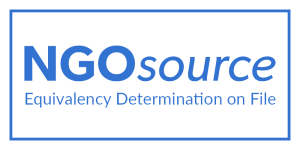New Evidence Gap Map Launches to Strengthen Environmental Advocacy in Uganda
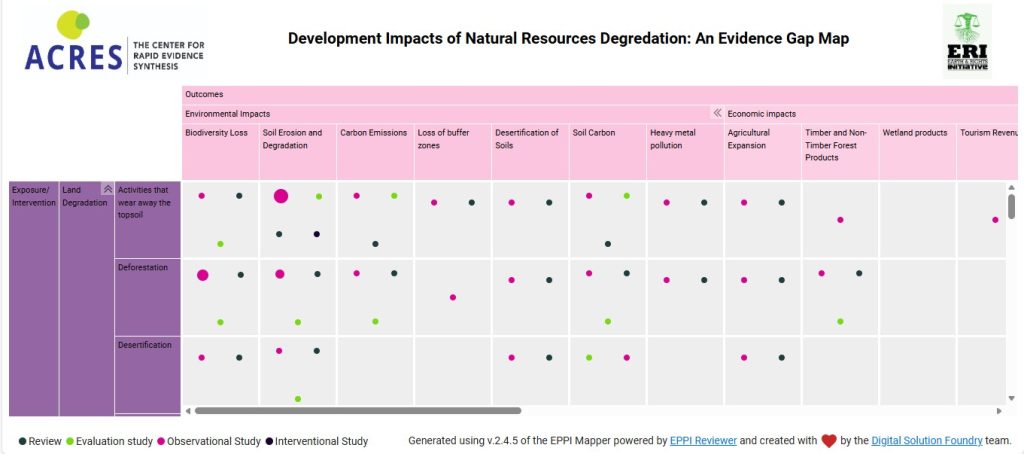
The Center for Rapid Evidence Synthesis (ACRES), in partnership with Earth & Rights Initiatives Uganda (ERI), is announces the launch of a new interactive Evidence Gap Map (EGM) on the developmental impacts of natural resources degradation. This tool is designed to empower policymakers, litigators, and advocates with a consolidated evidence base to drive evidence-informed environmental […]
Beyond the evidence: How Malawi and Uganda are building structures for smarter policymaking
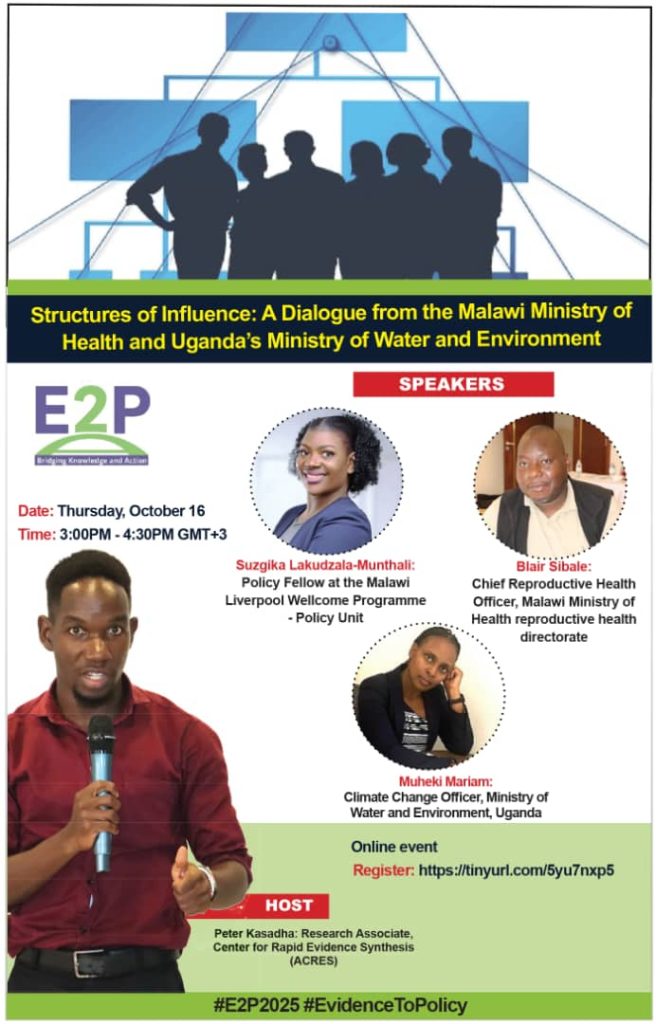
For years, the central challenge in Evidence-Informed Policymaking (EIP) has been clear: we know why evidence is crucial, but how do we build government structures that consistently use it? In a recent webinar hosted by Peter Kasadha, Research Associate at the Center for Rapid Evidence Synthesis (ACRES), “Structures of Influence: A Dialogue from the Malawi […]
ACRES drums up continental dialogue on evidence, AI, and leadership at Evidence 2025
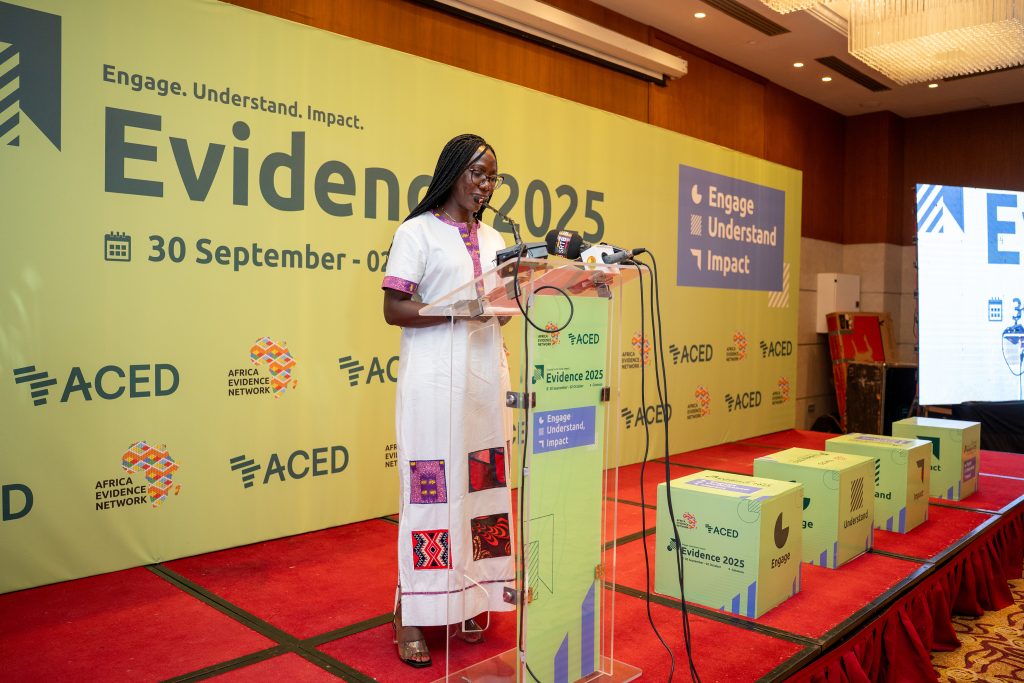
The city of Cotonou, Benin, hosted a landmark gathering of Africa’s evidence community from September 30 to October 2, 2025. The Evidence 2025 summit, convened by the Africa Evidence Network (AEN) and the African Center for Equitable Development (ACED) was a declaration of a new era for evidence-informed decision-making (EIDM) across the continent. With over […]
Mid-Level Learners Conclude Three-Day Review in Entebbe for ACRES’ Evidence to Policy (E2P) Training Programme
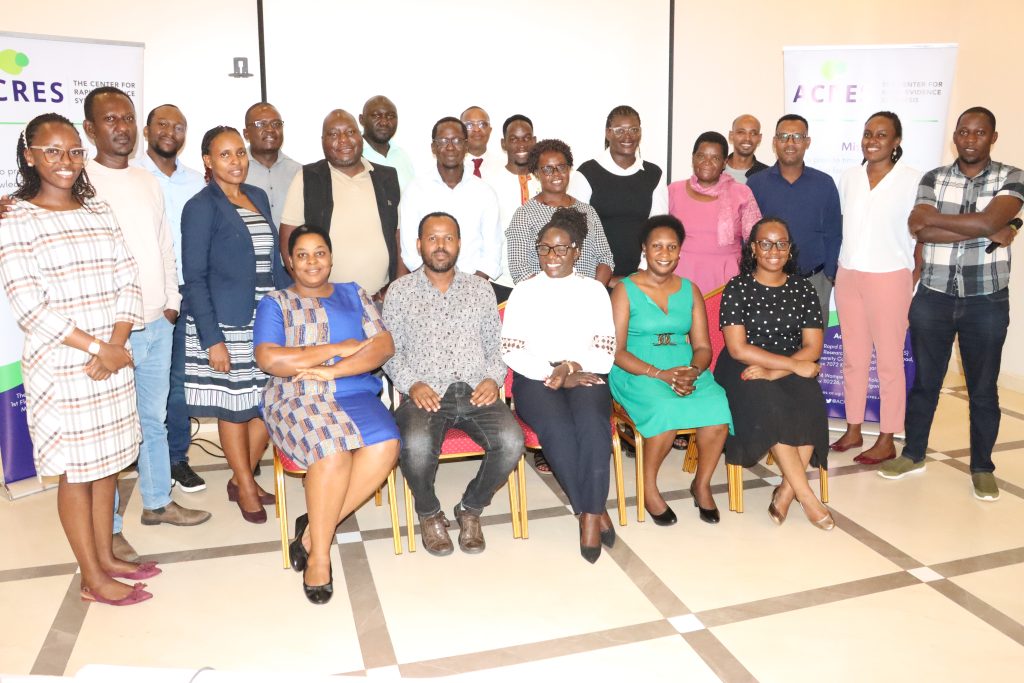
Mid-level learners in the Evidence to Policy (E2P) Training Programme, implemented by the Center for Rapid Evidence Synthesis (ACRES), have successfully concluded a three-day mid-term review in Entebbe, Uganda. The workshop held August 11 – 13, 2025 brought together 16 learners, including 8 policymakers and 8 knowledge brokers from Kenya, Malawi, Uganda, and Ethiopia, who […]
Charting the future of evidence synthesis: Key takeaways from the ESIC Cape Town Consensus Meeting
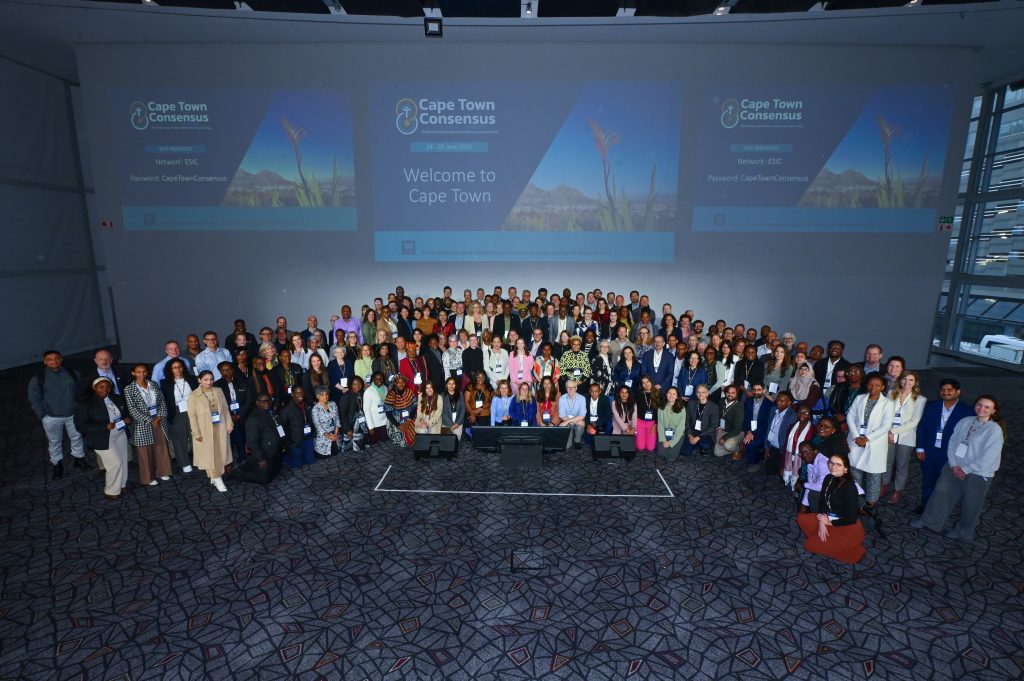
The Center for Rapid Evidence Synthesis (ACRES) and the Pan-African Collective for Evidence (PACE) co-hosted a gathering—the Evidence Synthesis Infrastructure Collaborative (ESIC) Consensus Meeting—bringing together 220+ global changemakers to advance a vision for the future of evidence synthesis. The meeting held June 24 – 26, 2025, was funded by the Wellcome Trust. Over three days […]
How AI is transforming evidence brokering in Africa: Insights from webinar on AI in EIDM
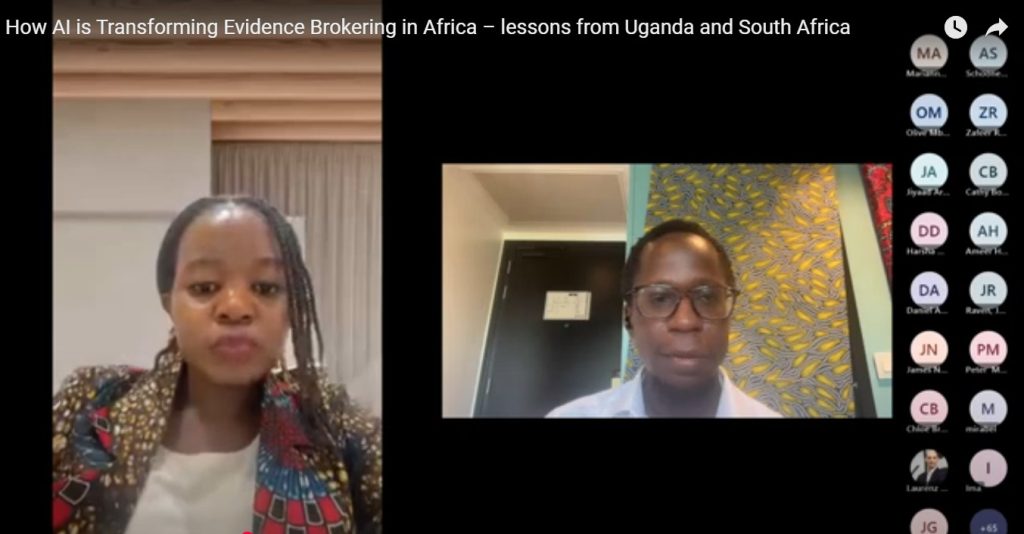
On June 12, 2025, the Center for Rapid Evidence Synthesis (ACRES) took part in a webinar titled “How AI is Transforming Evidence Brokering in Africa: Lessons from Uganda and South Africa.” Moderated by Ms. Gloria Anderson, the event brought together experts from ACRES and the Pan-African Collective for Evidence (PACE) in South Africa, sparking discussions […]
Understanding expectations for evidence synthesis when using AI compared to current best practice
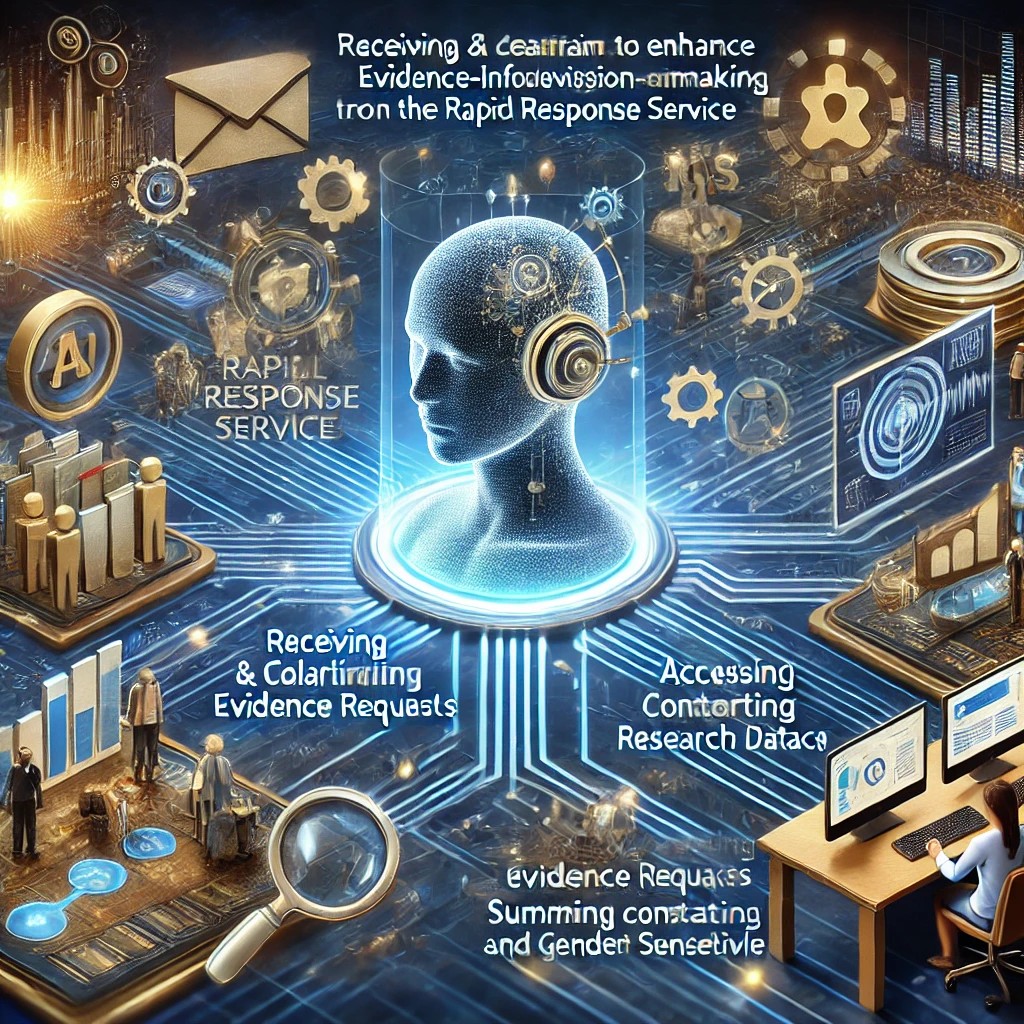
The rapidly growing evidence base and the increasing complexity of methods make completing timely, high-quality evidence synthesis more and more challenging. To ensure we can keep up with the demand and expectations of funders and users of evidence synthesis, we need to make better use of automation and AI in evidence synthesis. To do this, the […]
ACRES researchers participate in global conferences in Nairobi
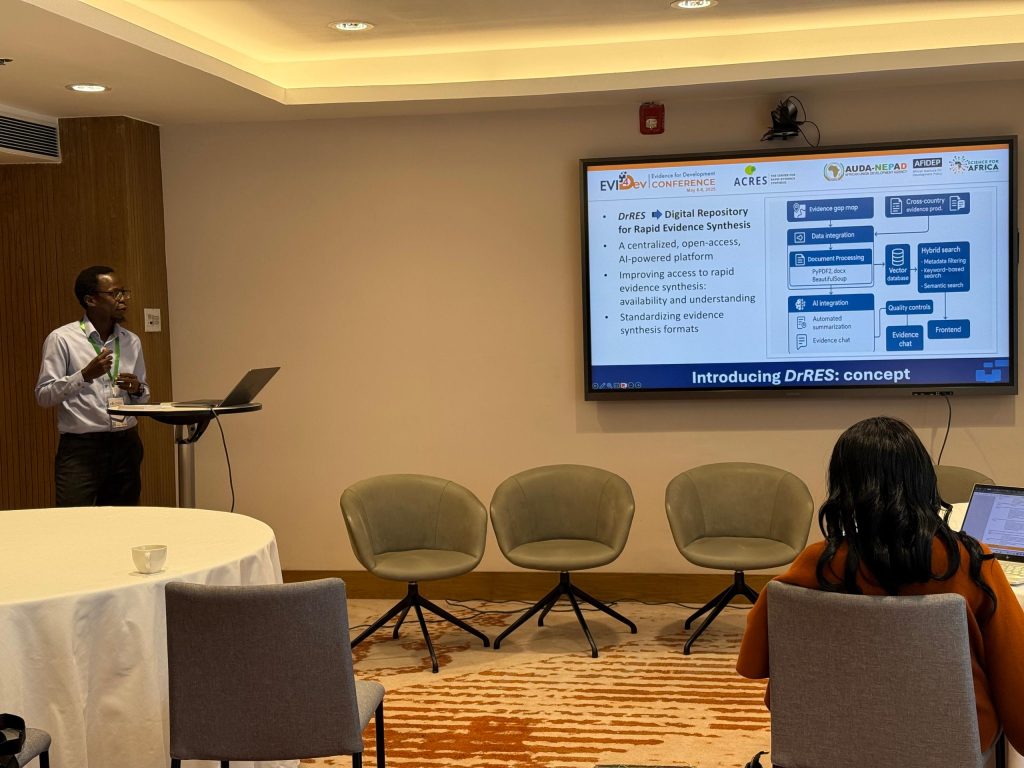
This May, researchers from the Center for Rapid Evidence Synthesis (ACRES) made waves at two major international conferences in Nairobi, Kenya — where they presented progress made by the Center to streamline the use of evidence in policymaking. Evidence for Development Conference 2025 From May 6-8, 2025, ACRES was well-represented at the Evidence for Development […]
Center for Rapid Evidence Synthesis (ACRES) Launches Mid-Level Evidence to Policy (E2P) Training Programme
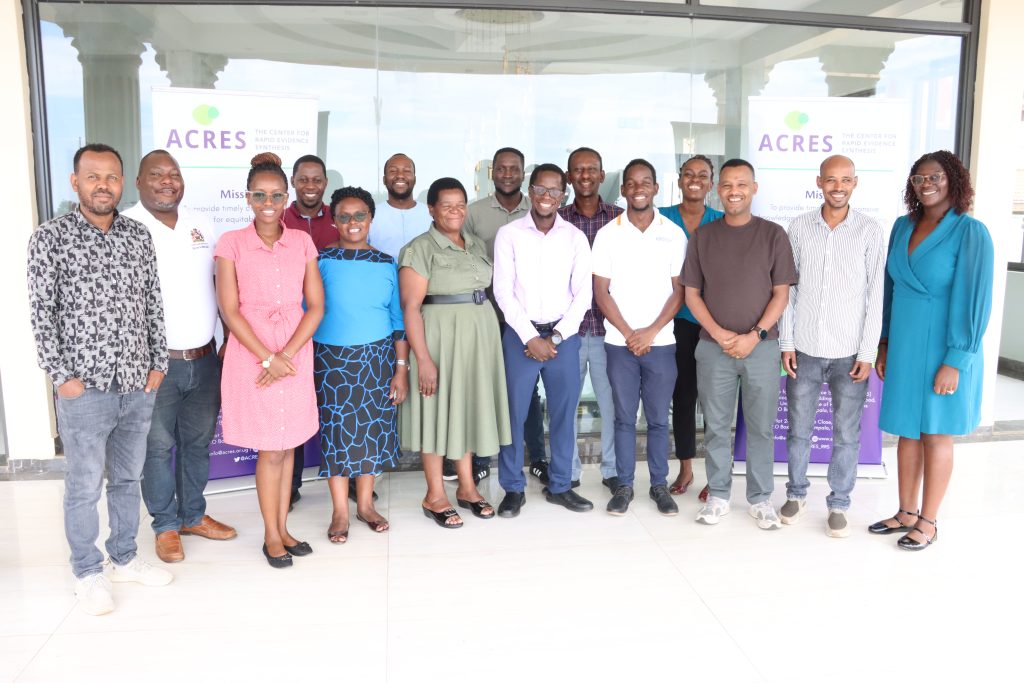
The Center for Rapid Evidence Synthesis (ACRES) launched the mid-level Evidence to Policy (E2P) Training Programme with an orientation exercise on April 29–30 in Entebbe, Uganda. Sixteen participants—policymakers and knowledge brokers from Kenya, Ethiopia, Malawi, and Uganda—will spend the next 28 weeks honing their skills in Evidence-Informed Decision Making (EIDM). The programme is supported by […]
Evidence to Policy Training Programme graduates inaugural cohort
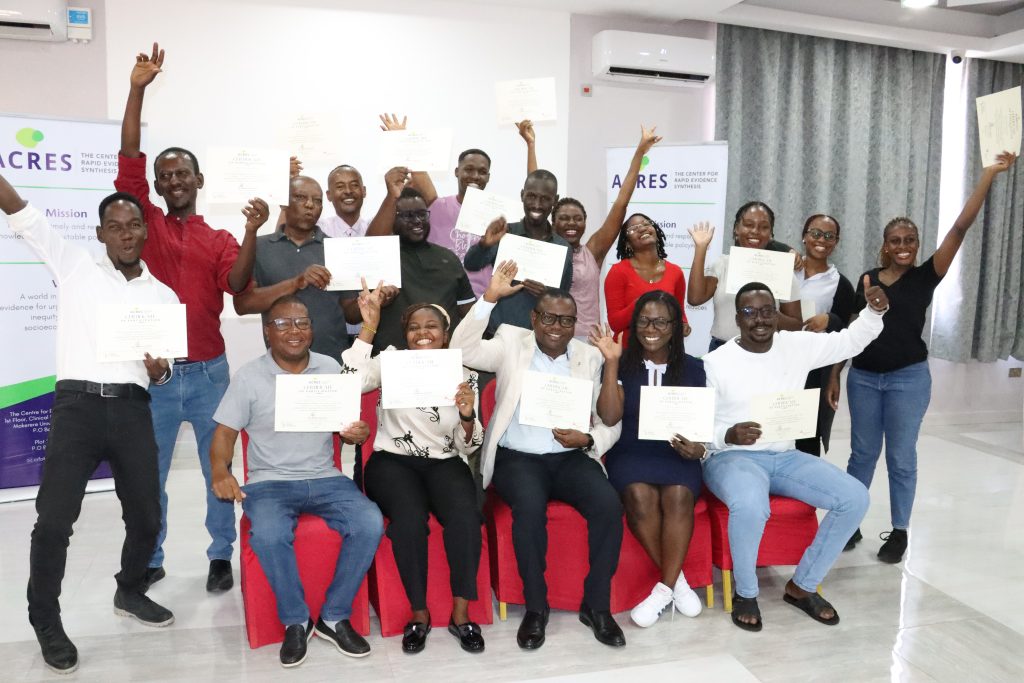
The first cohort of the Evidence to Policy Training Programme – Entry level celebrate the
completion of 15-weeks of study
